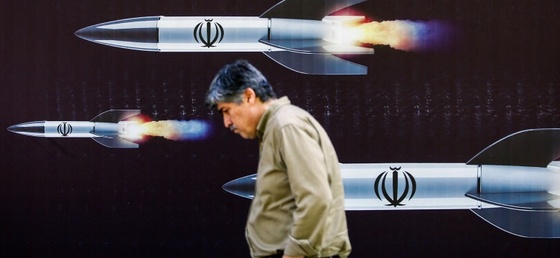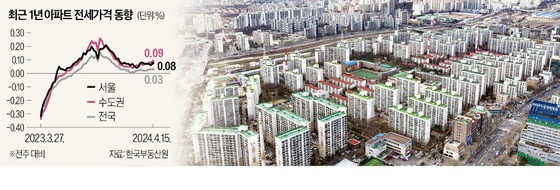[Global View] 제 발등 찍는 미국 국경조정세
![[Global View] 제 발등 찍는 미국 국경조정세](https://img.hankyung.com/photo/201704/AA.13500824.1.jpg)
미국답지 않은 정치적 포퓰리즘
하지만 미국 외의 다른 국가들과 월마트, 애플 등 해외에서 생산된 제품에 의존해 수익을 내는 일부 미국 대기업은 국경조정세 도입을 놓고 우려해 왔다. 미국이 지금까지 자유무역과 자유시장 정책을 통해 세계의 정치와 경제에서 주도권을 행사해 왔다는 점에서 대단히 미국답지 않은 태도이기도 하다.
트럼프의 보호주의적 국경조정세가 시행된다면 자유무역을 장려하고, 이로부터 정치·경제적으로 이득을 취해온 미국으로서는 스스로 발등을 찍는 일이 될 수 있다. 미국 소비자들은 결국 비싸게 물건을 사야 하거나 어떤 경우에는 생계를 이어가거나 평소 생활 수준을 유지하는 데 필요한 물건을 사지 못할 수도 있다. 국경조정세는 트럼프 자신의 사업에도 타격을 입힐 것이다. 예를 들어 트럼프 호텔들은 이탈리아산 대리석, 홍콩산 일회용 실내화, 태국산 얼음통 등 거의 모든 것을 외국으로부터 수입한다.
국경조정세는 미국의 국제·정치적 영향력, 유럽과의 동맹 관계, 미국 국민의 생활 수준, 미국 기업들의 시장가치에 부정적 영향을 미칠 것이다. 미국의 적자문제나 실업문제를 개선할 것이란 보장도 없다. 강(强)달러는 미국 수출과 수출 부문에서 일하는 근로자들에게 피해를 입히고, 특히 미국으로부터 수입하는 국가들을 다시 보호주의로 돌아서도록 할 것이기 때문이다.
WTO 규정에도 위반돼
보호무역주의 정책은 실행 가능성도 높지 않다. 세계무역기구(WTO) 규정에 위반되기 때문이다. 트럼프의 반(反) 이민 행정명령은 이미 미 법원에서 패소했고, 국경조정세를 도입해 WTO 협정을 위배한다면 국제법정에서도 패소할 가능성이 매우 높다.
우리는 대중인기영합적인 정치인과 경제구조적인 문제로 가장 고통받고 있는 시민들의 진정성 없는 관계가 반복되는 것을 보게 될 것이다. 선거에서 트럼프를 지지한 사람들은 트럼프가 대외 정책과 건강보험 개혁 문제에서 초반부터 실패하는 것을 보며 이런 진정성 없음을 깨닫기 시작했다. 트럼프와 그의 행정부는 참으로 미국을 위대하게 하는 것은 대중적으로 인기 있는 보호주의 정책이 아니라 자유무역과 자유시장 정책이라는 것을 깨닫게 될 것이다.
물론 기업이 해외에 이익을 쌓아두게 하는 미국의 법인세 규정은 개정되는 것이 바람직하다. 미국이 국내 법인세 체계와 기업 지배구조 메커니즘을 바꾸고, 국제적으로 이런 변화를 선도한다면 미국은 훨씬 더 위대해질 것이다.
이스마일 에르튀르크 < 영국 맨체스터대 비즈니스스쿨(MBS) 교수 >
U.S. Border Adjustment Tax: unrealistic and un-American political populism
Ismail Ertürk, the University of Manchester
Donald Trump, just like many recent crops of populist politicians across the developed world, promises easy solutions to deep structural domestic economic problems that cause serious youth unemployment and low-wage adult employment. One of such silver bullet solutions to the chronic unemployment problem and low-wage jobs in the US is to introduce border adjustment tax that would make imports to the US more expensive than products made in the US. Through such taxation Trump tries to force both US and foreign companies to produce in the US the products that they sell in the US domestic market so that employment in the US increases and the trade deficit improves. This was a sweet melody for the ears of precariously employed and unemployed US voters who casted their votes in the US presidential elections back in November 2016. However it was and still is a considerable concern for the rest of the world and for some big US companies like Walmart and Apple who rely on goods produced outside the US for their profits. It is also very un-American attitude to international trade as the economic and political hegemony of the US in the world has derived from its free-trade and free-markets policies. The US that has promoted free trade to the world and has benefited from it economically and politically could be shooting itself in the foot if Trump’s protectionist Border Adjustment Tax becomes a reality. US consumers will end up paying high prices and in some cases will end up not being able to afford for goods that they need for their subsistence and life styles. But just like other Trump policies on immigration and health this trade related policy is not properly worked out by Trump and his administration. A US Border Adjustment Tax will hit Trump’s own businesses. For example Trump hotels import almost everything from outside the US- marble from Italy, disposable slippers from Hong Kong, ice buckets from Thailand, etc. So the US’s global political power, its relationships with its allies in Europe, the living standards of US citizens and market values of US corporations will suffer. And there is no guarantee that the US trade deficit and the US employment will increase either as a strong US dollar will hurt US exports and workers working in exporting sectors, especially the countries importing from the US will revert to a protectionist mode as well.
In addition to the very likely negative economic and political consequences the chances of US implementing such protectionist policies are very small as these policies are not lawful under the international World Trade Organisation rules. Trump has already lost cases in the US courts in implementing his immigration policies and he is very likely to lose the cases against the US in international courts if the US violates the World Trade Organisation agreements by introducing a border tax. Therefore the proposed border tax is unrealistic as well.
There are serious structural economic problems in the US that prevent creation of high wage jobs. But the solution to this problem is not taxing imports. In fact taxation as explained above is very likely to hurt the US international political interests, its economy and its consumers. Therefore it is both un-American and unrealistic. But it helped Trump win the presidential election. So what we will see is just another repeat of populist politicians’ disingenuous relations with those citizens who suffer most from structural economic problems. The voters for Trump have already started to realise this insincerity in his early failures in foreign policy and healthcare bill. Trump and his administration will soon realise that what makes America really great is its free-trade and free-markets policies not populist protectionist policies. However the US has to change its corporate tax rules to make sure that the US companies bring their profits back to the US rather than keeping them offshore to avoid tax in the US. The US can be even greater if it can make changes to the corporate tax frameworks and corporate governance mechanisms at home and initiate similar changes internationally. The US should make big US multinationals work for their country and the global economy by paying proper taxes to the states and proper wages to their workers. The US should stop exporting the business models of the likes of Uber and Starbucks to the rest of the world where the drivers and baristas earn almost nothing but instead should manufacture and export business models for private firms that pay taxes and high wages. This will then benefit both the US and the rest of the world.
-
기사 스크랩
-
공유
-
프린트





![넷플릭스, 가입자 순증 꺾였다…악재 쏟아진 기술주 [글로벌마켓 A/S]](https://timg.hankyung.com/t/560x0/photo/202404/B20240419072033320.jpg)


![[단독] "경영보다 돈"…아워홈 매각 손잡은 남매](https://timg.hankyung.com/t/560x0/photo/202404/AA.36472890.1.jpg)





